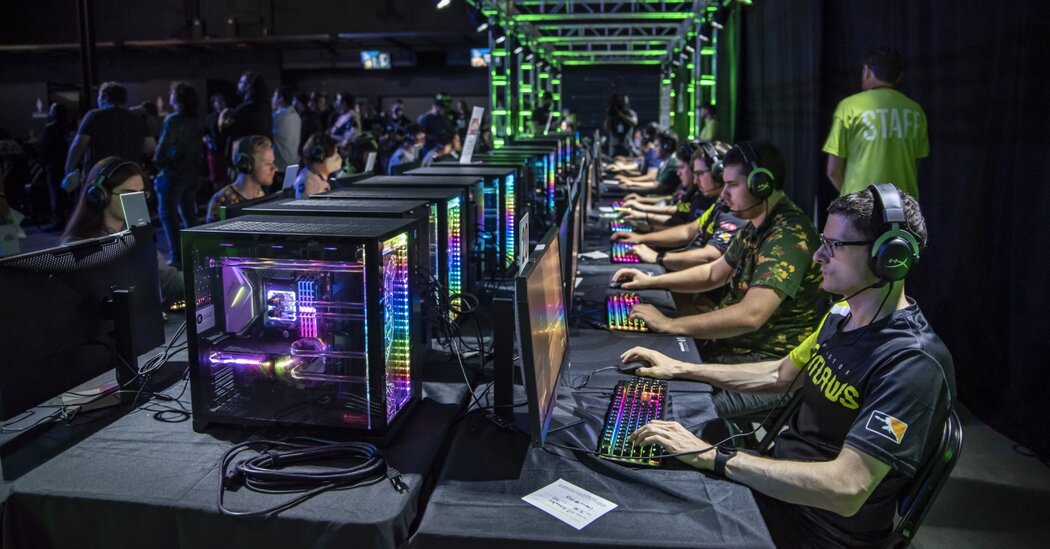Microsoft’s reluctant $69 billion bid to buy video game company Activision Blizzard received a glimmer of hope Monday when European Union regulators agreed to what would become the biggest consumer technology deal in two decades.
EU officials said they would grant the deal after Microsoft, the maker of the Xbox console, made concessions to ensure rival companies of new online gaming services would continue to have access to Activision-developed titles, such as the hugely popular Call of Duty.
Yet the blockbuster acquisition, which has become a test of whether regulators around the world will approve a tech mega-merger amid concerns about industry power, still faces an uphill climb. US and UK regulators have each taken steps in recent months to stop the takeover, arguing that a combination of the Xbox maker with the company behind it the Call of Duty franchise would hinder competition. Microsoft is fighting both actions.
The deal has exposed rifts between regulators over how to curtail the power of the world’s largest tech companies.
Opposition to the acquisition has focused in part on so-called cloud gaming, a relatively new technology that allows people to stream games on phones, tablets and other devices, potentially making hardware such as consoles obsolete. US and UK regulators said Microsoft’s purchase of Activision would undermine this still-developing sector of the gaming industry before it had a chance to flourish. The European Commission, the executive body of the 27-country bloc, gave its approval after Microsoft agreed to guarantee for 10 years that gamers could play Activision titles on cloud gaming services developed by other companies, such as Nvidia.
After negotiating the concessions with Microsoft, European Union officials said they concluded the deal could go through, especially since the cloud gaming market was still so small. Many Activision titles that are currently unplayable on smaller cloud gaming services would now be available, giving consumers a boost to the new technology, the regulators said.
“These commitments fully address the competition concerns identified by the commission and represent a significant improvement for cloud game streaming compared to the current situation,” the EU regulator said in a statement.
Microsoft said the concessions would benefit consumers.
“The European Commission has required Microsoft to automatically license popular Activision Blizzard games to competing cloud gaming services,” said Brad Smith, Microsoft’s president. “This will be global and will enable millions of consumers around the world to play these games on any device they choose.”
The European Commission said the deal would not hurt the console market because Microsoft would have no incentive to deny rivals, such as the Sony PlayStation, access to Activision titles without sacrificing profit. In the European Union, PlayStation has a much larger market share than Xbox.
The deal shows how difficult it is to build a global consensus to regulate an evolving technology industry. While policymakers on both sides of the Atlantic have expressed concern about the growing power of the technology industry, disagreements remain over when and how to intervene.
Monday’s approval is a rare occasion where European regulators seem more compliant than the United States. For years, European antitrust regulators, led by Margrethe Vestager, have aggressively pursued big tech companies like Google, handing out billions of dollars in fines and ordering changes to certain business practices. A new EU law coming into force next year will add more competition oversight to the biggest tech companies.
But in this case, it is the United States that takes the tougher stance. Lina Khan, the chair of the Federal Trade Commission, has made the challenge of mergers a central part of her plan to rein in the tech giants. The FTC sued to block Microsoft’s purchase of Activision in December, arguing that the deal would hurt consumers and lure gamers away from rivals. UK regulators followed suit last month, rejecting the acquisition over concerns about hurting the cloud gaming market.
Sarah Cardell, the CEO of Britain’s competition authority, the Competition and Markets Authority, said the European Commission’s decision gives Microsoft too much power to set the conditions for the cloud gaming market for the next decade.
“While we recognize and respect that the European Commission has the right to take a different position, the CMA stands by its decision,” Ms Cardell said in a statement.
An FTC spokesperson declined to comment.
Approval in Brussels creates a complicated legal chessboard for Microsoft and Activision, with few moves left to play. The fate of the deal will now largely depend on the legal process in the United States and Britain.
The two companies must demonstrate that the deal does not restrict competition, especially if Microsoft guaranteed access to Activision titles. While U.S. courts have shown they can be more open to overriding government antitrust initiatives, it is less common in Britain for decisions by the Competition and Markets Authority to be reversed.
A loss in either country could be fatal to the deal due to the globalized and interconnected nature of the video game industry and the technology it uses.

